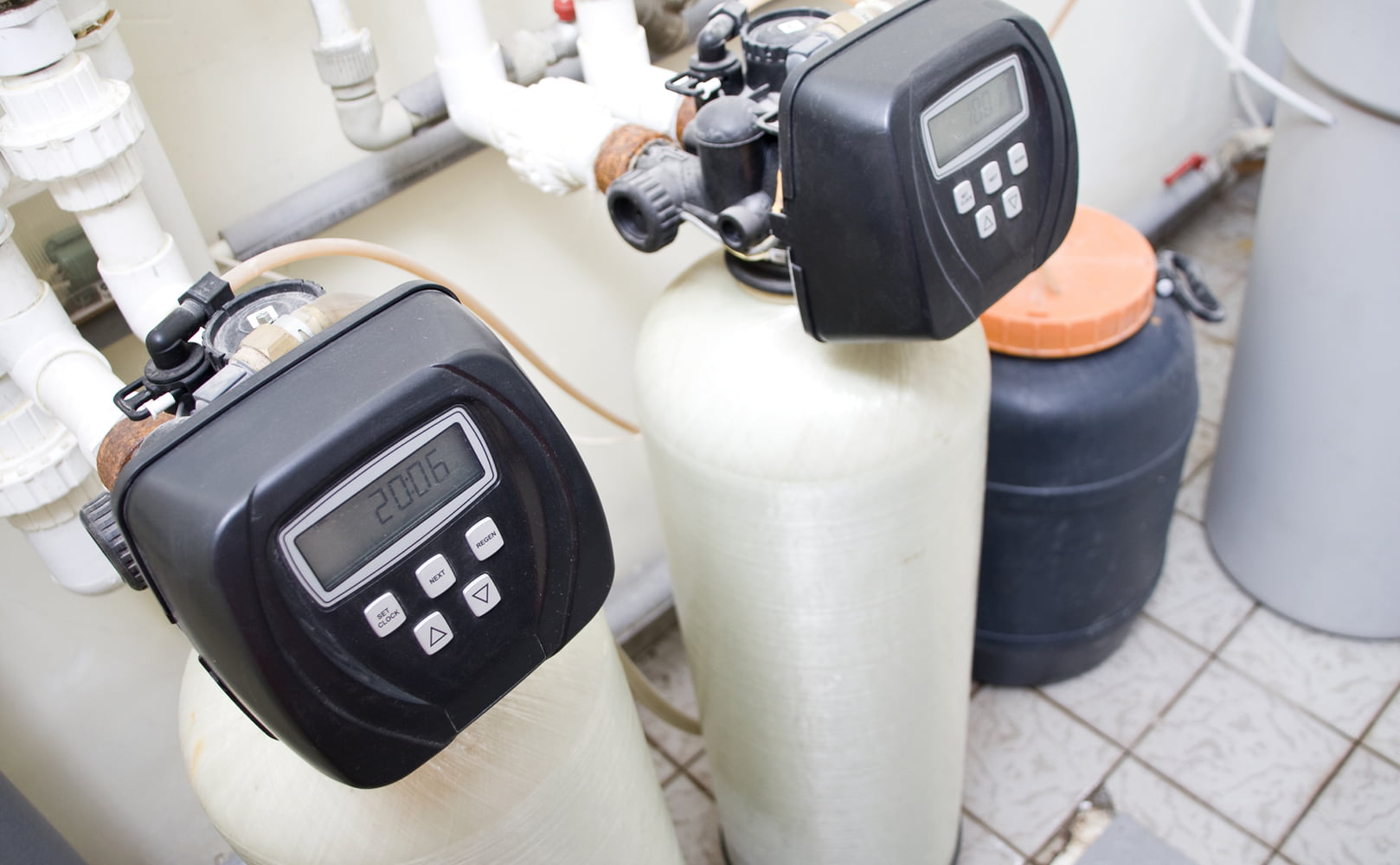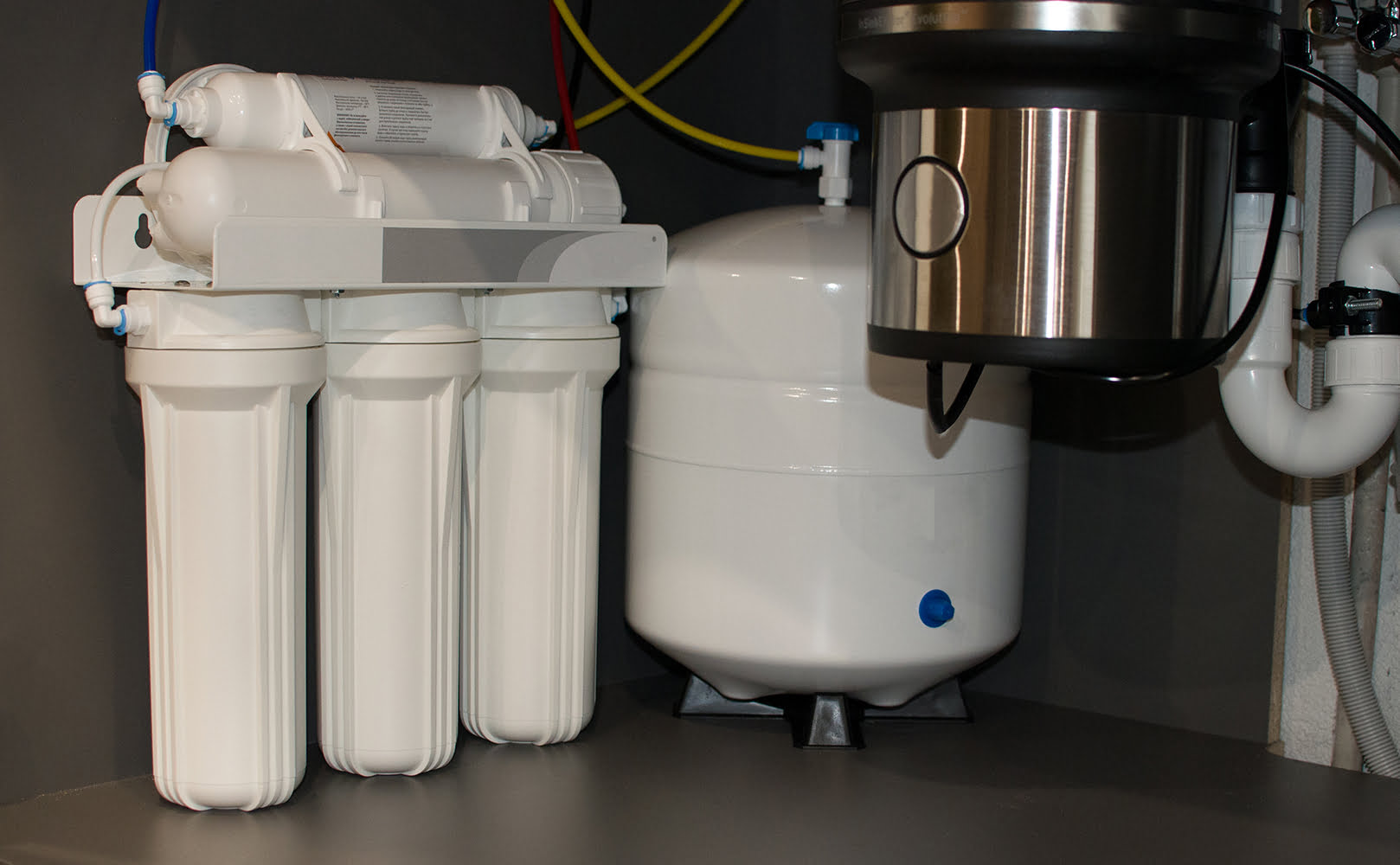Do I Need Both a Water Softener AND a Reverse Osmosis System?
Written by: Alexandra Uta // Last Updated: Apr 28, 2023
This page may contain affiliate links. If you buy a product or service through such a link we earn a commission at no extra cost to you. Learn more.
If you’re preparing to install a water treatment system in your home, you’ve probably already learned of the various options available to you.
Reverse osmosis is a very popular method for purifying water, while water softeners are frequently used in households with hard water.
Do you need to use both though, or can you just use one? Is it even okay to use the two in combination or could that lead to problems? If you’re wondering about these points, this article is for you.
Key Takeaways
- You don’t always need both a water softener and a reverse osmosis system – it depends on your water conditions!
- If your water is hard, you should get a water softener.
- If your water is contaminated, you should get a reverse osmosis system.
- If you have both problems, you can combine the two.
Do I Need Both a Water Softener AND a Reverse Osmosis System?
So, when do you need reverse osmosis AND a water softener?
Using a water softener along with a reverse osmosis system is highly recommended if your water is hard and contains harmful impurities that you want removed.
The water softener goes first. It removes any hardness providing soft water at the point of entry, meaning you’ll get soft water throughout your entire home. The soft water then gets purified by the reverse osmosis system usually at a specific point of use like your kitchen sink. However, whole house reverse osmosis systems also exist.
Reverse osmosis water purification removes pretty much everything – impurities and contaminants. It’s one of the most effective water filtration methods available today and great for producing healthy and safe drinking water.
While a reverse osmosis system would also get rid of hard water minerals, the RO membrane would clog really quickly in the process. This would significantly increase maintenance requirements and cost due to more frequent membrane replacements.
Do I Still Need to Install a Reverse Osmosis System If I Already Have a Water Softener?
If you already have a water softener installed, the decision to install a reverse osmosis system will mostly come down to how heavily contaminated your water is. If you don’t have many contaminants to deal with, then you probably don’t want to spend any extra money on reverse osmosis.
If, however, there are harmful contaminants in your water that you want to get rid of, reverse osmosis is a great way to do so.
Do I Still Need to Install a Water Softener If I Already Have an RO System at Home?
If you don’t have any issues with water hardness, you don’t need to install a water softener.
So if you already have a reverse osmosis system, installing a water softener only makes sense if your water is particularly hard. In that case, doing so is actually recommended – more on that below. But if you don’t have any hardness issues with your water, you will not need to use a water softener.
Using Both a Water Softener and an RO System Works Well
That said, using both in combination can be a great approach if you’ve got problems on both sides.
Water Softener Softens Water and Protects RO System
A water softener removes minerals from your water. Those could otherwise clog pipes and appliances. Plus, hard water spotting and staining can be a real pain.
But, hard water can also negatively impact the operation of a reverse osmosis system leading to fouling of the semipermeable membrane. As a result, you will have to replace it more frequently and you might notice the system working at a suboptimal performance level.
Reverse Osmosis Removes Contaminants + Softening Salt
On the other hand, a reverse osmosis system can help remove all dangerous contaminants from your water, including the salt that gets added during the softening process, which is great when you’re using the water for drinking.
Some people don’t care about the extra sodium content of their softened water, but this might be relevant to you if you have specific dietary restrictions or if you’re using that water in your garden.
Water Softening vs Reverse Osmosis – What’s the Difference?
There are many differences between water softening and reverse osmosis. The two processes are fundamentally different, and are meant to address separate water conditions.
Intended Use
Reverse osmosis and water softening are meant to address two entirely different problems. This already makes it hard to compare the two by default. In general, reverse osmosis is meant to remove contamination from drinking water, while water softening specifically targets scaling.
What Gets Removed
Reverse osmosis targets pretty much all contaminants in your water. Water softening only targets hardness minerals.
You might be wondering, what’s the point of using a water softener if reverse osmosis already gets rid of those minerals in the first place? In reality, water that’s especially hard can have a negative impact on a reverse osmosis system, decreasing its lifespan. Those minerals will accumulate on the membrane and progressively clog it. That’s why it’s not recommended to use a reverse osmosis system specifically for filtering out minerals.
Point of Use vs Point of Entry
Reverse osmosis systems are typically installed at a point of use, for example directly before a faucet in your kitchen. Water softeners, on the other hand, are commonly installed at the point of entry, meaning that they soften the water of your entire household. This makes sense because water softening is specifically useful for improving the lifespan of appliances, which means that access to soft water through the entire house is preferred.
Benefits of Water Softening
- Improved lifespan of your household appliances: you won’t have to deal with frequent issues related to scale build-ups in your washing machine, water heater, electric kettle, and other appliances.
- Cleaner clothes and dishes: hard water might negatively affect your laundry and dishwashing, leaving a nasty residue on everything. That won’t be the case if you use a water softener.
- Improved hair and skin health: another negative effect of hard water is that it can impact the health of your hair and skin. Water softeners can lead to a significant improvement in this regard.
Benefits of RO Water Purification
- Clean, fresh drinking water: there’s nothing like reverse osmosis when it comes to purifying drinking water. Distillation is probably the only other option that comes close in terms of purifying qualities, but it’s not scalable and has other issues.
- Improved taste and smell of water: this might not always be the case, but if your water is contaminated with elements which alter its taste or smell, you will notice a definite improvement when using a reverse osmosis system.
- Stay hydrated: drinking fresh water might make you more inclined to stay hydrated. You might not even notice anything wrong until you replace your regular water with reverse osmosis water.
- Get rid of bottled water: you will never have to buy another bottle of water for your home again, and you can forget about those annoying heavy trips to the store. What’s more, you will stop contributing to environmental pollution when you don’t have to buy so many plastic bottles.
If you have any thoughts about the question, do you need reverse osmosis and a water softener, please don’t hesitate to leave a comment below!
Information provided on BOS is for educational purposes only. The products and services we review may not be right for your individual circumstances.
We adhere to strict editorial guidelines. Rest assured, the opinions expressed have not been provided, reviewed, or otherwise endorsed by our partners – they are unbiased, independent, and the author’s alone. Our licensed experts fact-check all content for accuracy. It is accurate as of the date posted and to the best of our knowledge.



